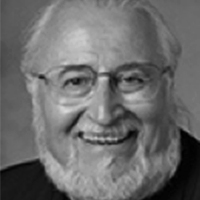 Dear Friends,
Dear Friends,
I was hurting early on the morning of May 29, 2020. Over the past three days, I had seen the 10 second snippet of the murder of George Floyd in Minneapolis several times. It was disturbing. Then, late on the night of May 28, as protests mounted, I felt compelled to watch the full nine-minute video filmed by 17-year-old Darnella Frazier.
I was stunned. I needed to reach out to share my grief. I generated this statement and shared it that morning with over 100 members of the Polarities of Democracy Community. These are community activists, doctoral students and graduates, and faculty affiliated with the Institute for Polarities of Democracy. The Institute promotes the Polarities of Democracy theory that I developed through my doctoral and post-doctoral research at the University of Toronto. That theory grew out of a journey that I began back in 1960 in search of the values necessary to sustain a democratic society.
Watching the video filmed by Darnella Frazier took me back to that era of the 60s and Bull Conner who, in 1962-1963, unleashed police dogs and fire hoses on civil rights advocates. The murder of George Floyd was much worse. The full nine-minute filming shows officer Derek Chauvin casually grinding his knee into the neck of Mr. Floyd as the life slips from his body.
Do not watch the video unless you are prepared for the enormity of the tragedy of seeing a human life taken slowly in front of your eyes. Taken while fellow officers did nothing. Taken while Mr. Floyd begged for his life. Taken while protesters (yes, the Minneapolis protests started before Mr. Floyd had even died) begged the police to let him get up or at least take his pulse. His life literally drains from his body as you watch that video. By the end of the video it is clear that Mr. Floyd is dead. And reports indicate that when Officer Chauvin finally released Mr. Floyd after the EMTs arrived, they searched for his pulse, and it was not there.
None of that was revealed in the initial police statement following George Floyd’s murder. That statement made it sound like he resisted arrest, experienced a medical problem, and died at the hospital. When you watch the video, you know that he is dead when it is over. And we would not know that without the video.
I apologize for sharing such a painful message, but I cannot remain silent, given the rage in Minneapolis that night which has spread across the country over the weekend. Martin Luther King Jr. stated “And I must say tonight that a riot is the language of the unheard. And what is it America has failed to hear? … It has failed to hear that the promises of freedom and justice have not been met. And it has failed to hear that large segments of white society are more concerned about tranquility and the status quo than about justice and humanity” (March 14th, 1968). To remain silent in the face of his murder would be to allow George Floyd’s voice to be unheard.
My work and the work of the Polarities of Democracy community is to make sure that the promises of freedom, justice, equality, and human rights are met. Given the structural racism that exists in America today those promises are not likely to be met in my lifetime, perhaps not in yours. But the struggle for our humanity must continue no matter how long the road. There are people who cannot hear the voice of George Floyd. And there are people and forces who ignore his voice because it helps to sustain their positions of power.
The Institute for the Polarities of Democracy was created to sustain our belief in freedom, justice, equality, and human rights and to forge our actions into concrete ways to serve the common good and to make the promises of democracy a reality. That we may not achieve this goal in our lifetimes is not failure. Failure would be to ignore the cries of George Floyd, and to ignore the cries of all who suffer from oppression. Success may not come in the form of righting the wrong. But success can be manifested by hearing the voices of oppression and working to strengthen our humanity and our ability to continue in the struggle.
I send this message with great sadness but an ongoing commitment to that struggle,
Bill Benet
William J. Benet, PhD
Vice-President and Senior Fellow, the Institute for Polarities of Democracy
bill.benet@instituteforpod.org
https://scholarworks.waldenu.edu/pod
“Cowardice asks the question – is it safe? Expediency asks the question – is it politic? Vanity asks the question – is it popular? But conscience asks the question – is it right? And there comes a time when one must take a position that is neither safe, nor politic, nor popular; but one must take it because it is right”.
Dr. Martin Luther King, Jr
